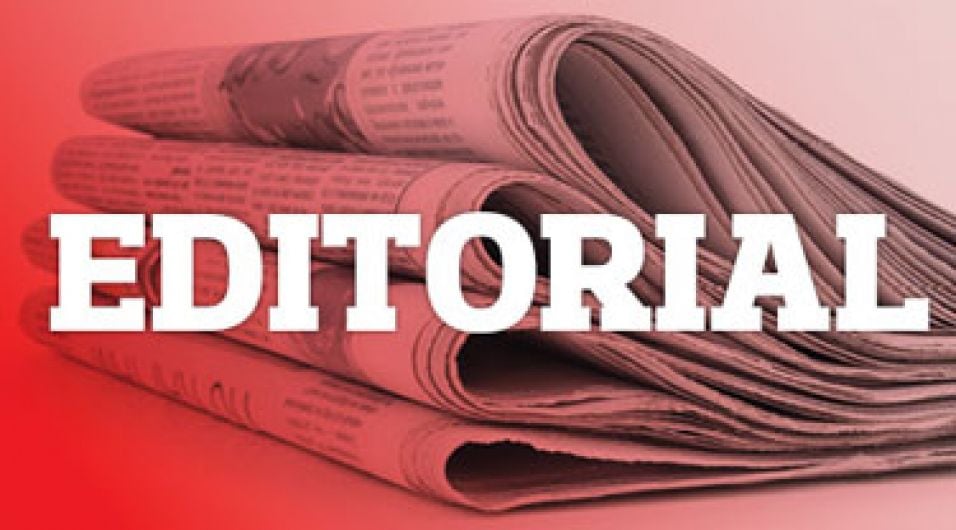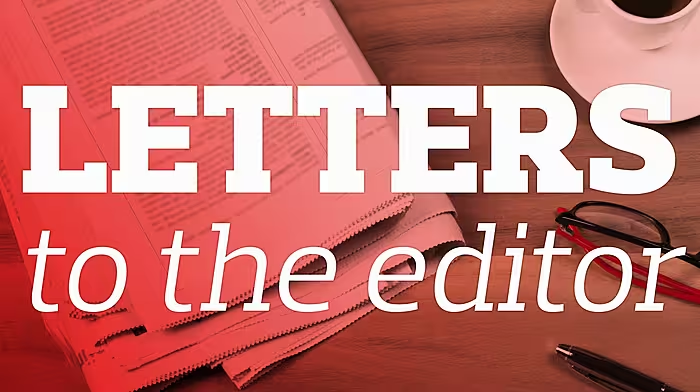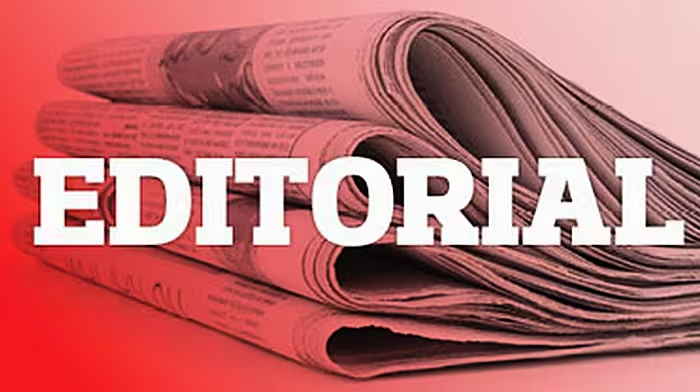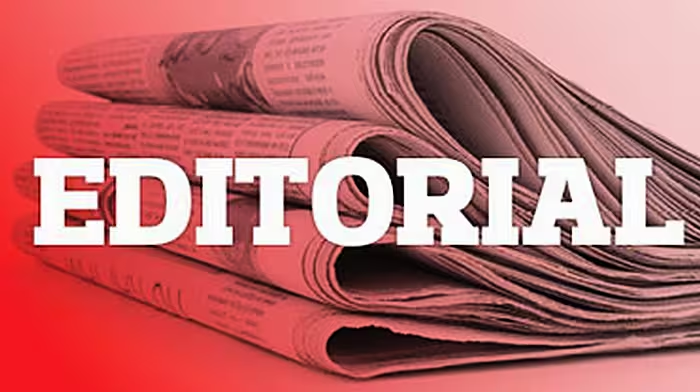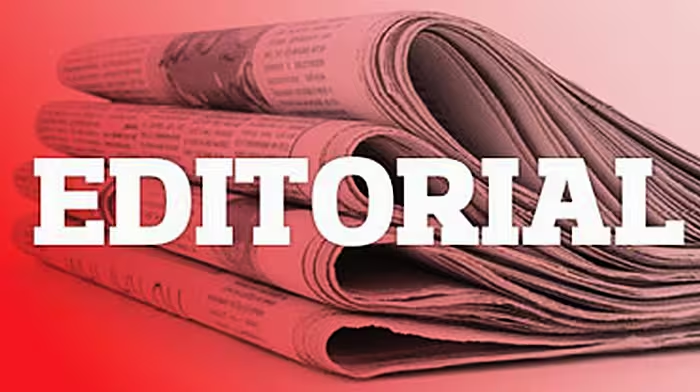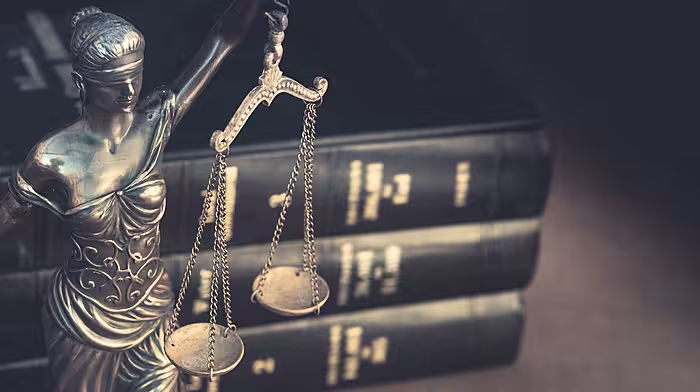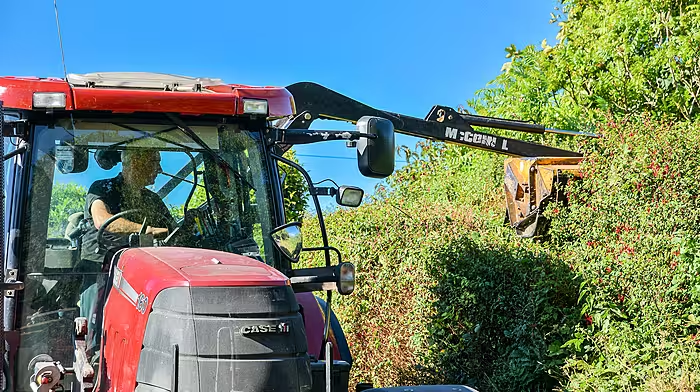WORLD Press Freedom Day, on Sunday last, May 3rd, provided an opportunity to reflect on where the world is at in terms of press freedom. Notwithstanding last year’s killing of Lyra McKee while covering a disturbance in Derry, journalists in Ireland are in a generally good place with very few living in fear of their lives, although those covering crime involving feuding gangs have to be more conscious of their safety and those of their families.
The main lesson that emerged from the 1996 killing of Sunday Independent crime journalist Veronica Guerin was that being a high-profile and popular writer does not make one immune from becoming a target. If anything, today’s drug barons and their henchmen are even more ruthless and brutal than they were 24 years ago and caution has to remain a byword for journalists in the field.
In the multi-platform media world we live in today, trying to separate fact from fiction is difficult, especially if people are taken in by populist nonsense from untrusted sources. Many cynics would have us believe that all of the mainstream media is in cahoots with the authorities, sheepishly feeding propaganda and convenient soundbites to the general public, but this is rubbish.
The vast majority of responsible media outlets operate under the democratic principle that ‘the price of freedom is eternal vigilance’ and they are constantly trying to hold politicians and business leaders to account. Of course, this needs to be a two-way street and the various branches of the media also need to be open and subjected to scrutiny and criticism themselves in order to justify the public’s confidence in them.
As well as persistently asking the difficult questions, journalists can make requests under the Freedom of Information Act in order to ensure that there is transparency in the way State agencies operate and to hold them to account, if necessary.
Only last week, we highlighted the lack of availability of proper minutes of the meetings of the various groups and sub-groups within the ambit of the National Public Health Emergency Team (NPHET), showing how their recommendations to government, particularly in relation to restrictions of people during the Covid-19 pandemic, were arrived at and if there were any dissenting voices recorded. Since then, efforts have been made to bring the minutes up to date, which is important, even if it is only for posterity, as the public has a right to know.
Questions also have been asked about some of the restrictions on people’s movements and the enforcement of them and, while there is general tolerance of the curbs in the interests of public health, they can only ever be temporary and that needs constant highlighting, otherwise we could drift into a form of police state. Thankfully, apart from some exceptional circumstances, An Gárda Síochána have policed these restrictions ‘by consent’ and that equally deserves to be highlighted.
However, there are other less-tolerant countries where journalists covering the Covid-19 pandemic have become victims of the convenient old ‘shoot the messenger’ fall-back and have suffered for criticising their governments’ approach to containing the virus. Amnesty International has been highlighting cases where authorities may have put people’s right to health at risk by cracking down on freedom of expression and access to information.
Chinese authorities censored media reports and punished whistle blowers from the start of the pandemic, while journalists around the world have been risking their lives, freedom and jobs to share potentially lifesaving information with the public in countries including India, Russia, Chechnya, Venezuela, Azerbaijan, Kazakhstan, Serbia, Bangladesh, Cambodia, Uganda, Rwanda, Somalia, Niger, Tunisia and Palestine, to mention just a few.
Even within the European Union, the Hungarian government, headed by Victor Orban, has controversially and unacceptably harassed, threatened and smeared journalists for their scrutiny of the authorities’ response to the outbreak. As Amnesty International’s Director of Law and Policy, Ashfaq Khalfan, commented, ‘There is no hope of containing this virus if people can’t access accurate information.’
It is difficult to even dignify US President Donald Trump’s suggested cures for Covid-19 with a serious comment. The mind boggles as to how he came up with the ideas of injecting disinfectant and light into the body and, while most sensible people don’t take him seriously, there are some who do and who may be inclined to act on his madcap suggestions. Fake news personified.
Back on the home front, it is heartening for us to note, during these Covid-19 restrictions, that a survey conducted by Local Ireland revealed that local news publications, print and online, are being consumed more than ever before. Almost a quarter of those aged 16 to 34 years rely on local news media more than ever to provide them with trusted news, with 48% reading more local newspapers in print than they did before and 14% more likely to have increased their usage of local news websites.
Content is king and it is crucial that its provenance is reliable, accurate and trustworthy.

